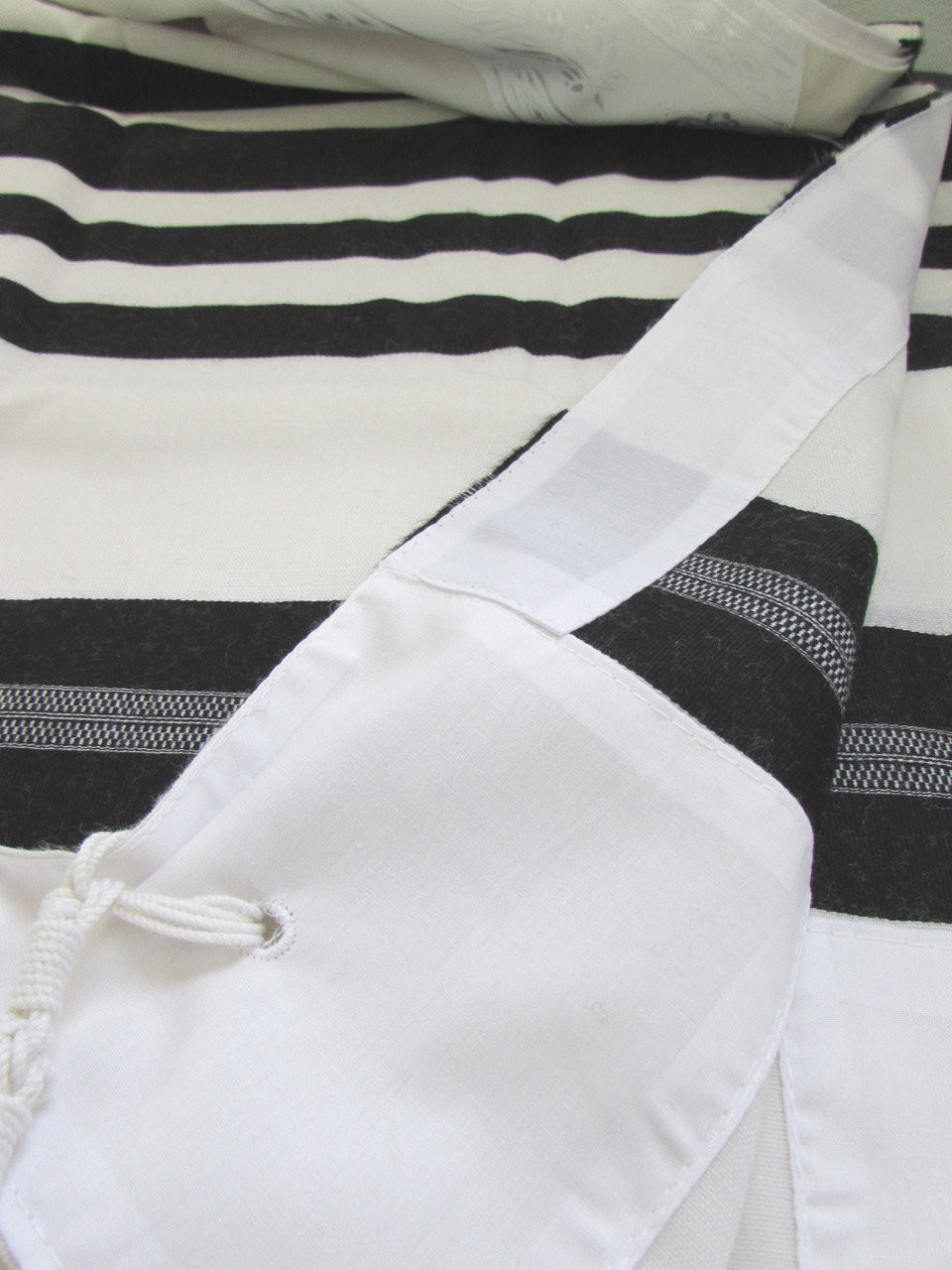Product Description
» Half-lining (extends lifespan of the tallit)
» Side bands
The History of the Turkish Tallit
These Turkish tallits became a sought-after commodity in various Jewish communities, particularly in Chassidic circles.
In 2008 it was found that Turkish tallits could no longer be safely assumed to be free of linen and therefore require rabbinic supervision like other tallits.
Echt Turkish (Tunis) vs. Kmo Turkish
The Echt features unique double-knotted fringes along the edges and is sometimes sold without an atara, because many who opt for the Turkish or Kmo tallit have a special, ornate atara sewn on.
Product Videos
Custom Field
Product Reviews
4 Reviews Hide Reviews Show Reviews
-
Now that is a tallit!
Amazing quality. This is my other tallit, the one for special occasions. Wonderful item. Kudos to Ben & team for this product and their service. Love the Turkish touch.
-
EXCELLENT TALLIS
THIS IS THE FOURTH TALLIS I PURCHASED FROM BEN. RECEIVED BEST SERVICE AND FEEL LIKE MISHPUCHAH.IF YOU ARE LOOKING FOR A TRADITIONAL TALLIS, THIS TALLIS IS FOR YOU. BEN IS A MAN OF HONESTY AND INTEGRITY, WHICH IS A RARITY.
-
Kmo Tallit
Great Service and tallit is of excellent quality. thank you
-
Excellent Tallit and service from Ben
I started placing my order for this tallit in December of '13 and have used its as my main tallit since then. It is a lovely tallit though it is at times very warm in the tropical climate I live in. This is in no way a fault; I wanted a heavy tallit and wear it down to my knees so there is a lot of fabric there. With the weight I certainly know it is there which is exactly why I went for a heavier weave. I also wanted to have the fringe tied with a single knot instead of the normal double knot; Ben was awesome in making that happen, calling his distributors to ensure it could be done. I would highly recommend you buy your tallit from this shop, it was a great experience and I got exactly what I wanted. I currently have another in my shopping cart (though this time a little lighter one for the summer). Thanks again Ben's tallit shop...i love my Kmo Turkish tallit!
 United States Dollar
United States Dollar
 Shekel
Shekel
 Euro
Euro
 British Pound
British Pound
 Australian Dollar
Australian Dollar
 New Zealand Dollar
New Zealand Dollar
 Canadian Dollar
Canadian Dollar













